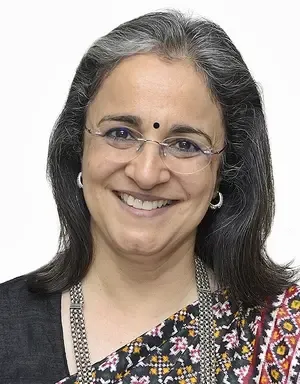Did Lokpal Clear Former SEBI Chief Madhabi Puri Buch of All Allegations?

Synopsis
Key Takeaways
- All complaints against Madhabi Puri Buch were dismissed.
- The Lokpal found allegations to be vexatious and politically motivated.
- The Adani Group was fully exonerated by the ruling.
- The integrity of India's regulatory framework was reaffirmed.
- The Hindenburg Report was deemed unreliable by the Lokpal.
New Delhi, May 28 (NationPress) - The Lokpal has officially dismissed all accusations leveled against former SEBI Chairperson Madhabi Puri Buch. These complaints primarily emerged from the Hindenburg Report, which suggested issues such as corruption, conflict of interest, and quid pro quo dealings related to her position at SEBI and certain regulated entities, notably the Adani Group.
Three distinct complaints were submitted against Buch, all stemming from the second Hindenburg Report. The Lokpal found these allegations to be vexatious, frivolous, and politically motivated attempts to sensationalize regulatory matters.
The complainants received an indirect warning for trivializing the complaint process.
A spokesperson for the Adani Group stated that the Lokpal’s ruling confirms that the accusations of regulatory favoritism involving the Adani Group were utterly unfounded, as the company was fully exonerated by a constitutional authority.
The Lokpal's order emphasized: "We have concluded that the allegations in the Complaint(s) are based more on presumptions and assumptions rather than supported by any verifiable evidence and do not meet the criteria for offenses under Part III of the Act of 1988, thus no investigation will be initiated."
Consequently, these complaints are deemed resolved.
The order also acknowledged, "The effectiveness of the investigations and actions undertaken by SEBI regarding the Adani Group has been recognized by the Supreme Court. This matter cannot be reopened, either directly or indirectly," as stated in the ruling.
The investigations and regulatory measures by SEBI, especially concerning the Adani Group, have survived scrutiny from both judicial (Supreme Court) and quasi-judicial (Lokpal) avenues, according to the company spokesperson.
The Lokpal regarded the Hindenburg Report as an unreliable and biased piece authored by a known short-seller.
“The complaint(s)... were fundamentally based on the Hindenburg Report... that report alone cannot serve as the sole justification for escalating actions against the RPS... the allegations... are unreasonable, unsupported, and nearly frivolous,” the Lokpal's ruling indicated.
The order also hinted that the Adani Group was being targeted through politically charged complaints against a regulatory body.
"By presenting such unverified and flimsy allegations, aimed merely at sensationalizing or politicizing the situation, the Complainant(s) have inevitably trivialized the process before the Lokpal. This constitutes nothing less than vexatious proceedings," the order stated.
No evidence of wrongdoing or manipulation by Adani Group companies has been discovered by any competent authority to date—ranging from SEBI to the Supreme Court to the Lokpal, the company spokesperson affirmed.
“The named RPS and her spouse were solely passive investors... had no control... no connection with... Adani Group shares, as disclosed in the investigations,” the Lokpal noted.
This ruling serves as a robust endorsement of due process and establishes a critical precedent against media trials, foreign speculative reports, and unverified claims.
“We have adhered to the standards set forth by the Constitution Bench... in Lalita Kumari... the allegations... lack support from any verifiable material,” the order remarked.
By reiterating SEBI’s institutional integrity and rejecting conflict of interest claims, the ruling sends a powerful message that India’s capital markets are effectively governed.









